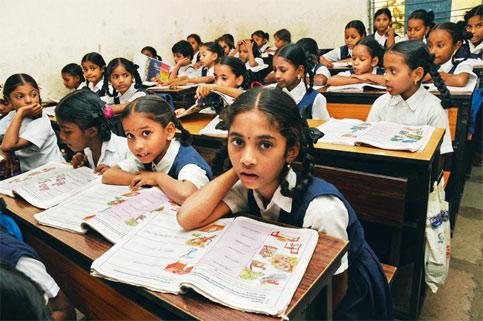The Committee was formed earlier this year to provide recommendations on the implementation of the amendment under Right to Education Act 2009, which proposed students will have to appear for re-examination who fail the regular examination, that included academicians, education policy makers and representatives from private, government and municipal schools.
The government received various recommendations which included regulations in the evaluation of results of children individually. Variety of break-downs were introduced, to evaluate results apart from considering the examination score, which included 15% of the total marks to be provided on the basis of attendance, 10% for the participation in co-curricular activities and 5% based on the attendance of the parents during the conduction of PTM’s. This comprised of 30% out of the total.
Since 70% of the total marks were evaluated on the basis of the examination was recommended to be broken down in three parts which included 10% based on minimum competency results to be scored at primary levels; 30% based on ‘generic assessment’ that includes questions on a passage, picture or diagram from each subject; and 30% based on standard subject-wise testing as is practiced in schools. This shows that only 30% of weight is given to the testing practices.
The committee explained that if a child scores less than 40% in Classes V to VIII based on the evaluation as recommended by the committee, will be allowed to appear for re-examination. Also, the examination accounts for only 70%, but if a child scores less than 40% overall will have to sit for another year in the same class.
Looking at the declining rate of results scored by Classes IX in Delhi government schools after the implementation of no detention policy, the committee proposed this criterion. In 2012-13 it was found that the Class IX results declined from 89% to 55.96%. The committee analyzed that this decline over these years is due to the implementation of no detention policy which made children, parents, stakeholders, and teachers too lenient and firm to the evaluation of results as no child was supposed to be held back.
The recommendations made by the committee has been passed on for further evaluation to RTE State Advisory Council and the approval for the same is awaited.

